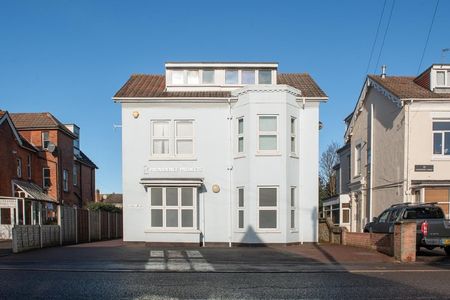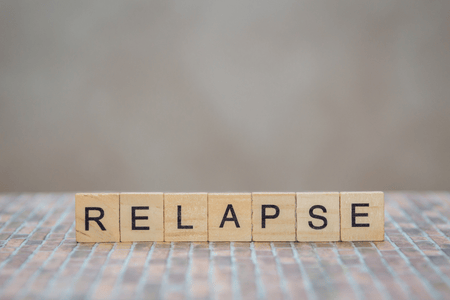
Written by:

Medically Reviewed by:
Last Updated:
November 28th, 2025
Secondary Care Programme
Because sometimes we need extra help
Finishing your primary addiction treatment is a major achievement, one that deserves recognition. You’ve confronted challenges, committed to change, and shown real courage. But recovery doesn’t stop when rehab ends; it’s an ongoing journey.
Moving from the structured routine of rehab into everyday life can be one of the most sensitive phases of recovery. Without support, it can feel like navigating a tightrope with no safety net. That’s where secondary care steps in. It acts as a bridge between the protective environment of rehab and the independence of daily life, giving you the opportunity to practice sober living while still having access to professional guidance and the support of peers.

Understanding Secondary Care
Secondary care is your next chapter after rehab, a place where the skills you’ve worked hard to learn meet the realities of everyday life. You’ve already faced the hardest challenges: detox, therapy, and mastering the tools to stay sober. Secondary care gives you a safe space to put those tools into practice before stepping fully into independence.
It’s lighter than full-time alcohol and drug rehab but far from just a pause. Here, you can experiment with new routines, tackle day-to-day challenges, and strengthen your coping skills, all with guidance and support when you need it. The focus is on building confidence, resilience, and the freedom to live sober, one step at a time.
Secondary care often covers:
- Managing triggers: Recognising risks early and using strategies to prevent setbacks.
- Life skills for recovery: From cooking and budgeting to organising your day, it’s about forming habits that support long-term sobriety.
- Ongoing guidance: Regular check-ins and therapy sessions help you process emotions, get advice, and stay on track.
Secondary care turns the lessons you’ve learned in rehab into lasting habits, bridging the gap between structured treatment and independent, everyday recovery.
Why Secondary Care Can Be a Game-Changer
Early recovery can feel like walking a tightrope. You’ve put distance between yourself and substances, but the old triggers, ingrained habits, and unresolved emotions don’t vanish overnight. The pressures of day-to-day life, work, bills, relationships, and social situations can come rushing back in, sometimes faster than you’re ready for.
Going straight from the structured, protective environment of rehab to complete independence can be overwhelming. The shock is real, and without the right support, it’s easy to lose your footing. That’s where secondary care steps in.
Secondary care is a safe, structured, and supportive stage of recovery where you can start to rebuild your life at a pace that feels manageable. It’s not about keeping you “in treatment” longer than you need. It’s about ensuring the work you’ve done in rehab is solidified, expanded, and fully integrated into your everyday reality.
At Providence Projects, our Secondary Care Programme is designed to keep you supported, motivated, and focused.
Here’s how it can transform your recovery journey:
1. Keep You Connected
The recovery community is a lifeline. With ongoing access to addiction specialists, one-to-one therapy, group sessions, and peers who understand exactly what you’re going through, you’ll never have to face challenges alone.
2. Turn Skills into Habits
Drug and alcohol rehab teaches you coping mechanisms, communication skills, and relapse prevention techniques, but secondary care gives you the chance to live them. You’ll apply what you’ve learned in real-world situations, then return to a safe space to discuss what worked, what didn’t, and how to keep improving.
3. Build Real-World Confidence
From navigating tricky conversations with loved ones to managing work stress and finances, secondary care helps you tackle the “everyday tests” without slipping back into old patterns. Each success builds confidence and reinforces your ability to stand on your own.
4. Provide Structured Living
With safe accommodation, daily routines, and ongoing accountability, you get the best of both worlds: independence with a safety net. Structure can be the difference between staying on track and falling back into chaotic patterns.
5. Ease the Move to Independence
You decide the pace. By gradually stepping into more responsibility and independence, you reduce the risk of burnout, overwhelm, or isolation, giving your recovery a stronger, more sustainable foundation.
Secondary care at Providence Projects isn’t just a “bonus step”; it’s a crucial safeguard for long-term sobriety. It blends practical tools, emotional stability, and a supportive community into one programme designed to make recovery stick.
Because recovery isn’t about just staying sober, it’s about building a life you want to live, and secondary care helps make that life a reality.
Looking for Secondary Care? Here’s How We Stand Out
At our Providence Projects centre in Bournemouth, we specialise in guiding individuals through the critical stage between residential rehab and fully independent recovery. Our secondary care programme provides extended support, relapse prevention strategies, and practical life skills.
Our approach is straightforward yet powerful: combine professional guidance, structured support, and a strong community environment to turn early recovery into lasting, sustainable change.
Intensive, Purposeful Therapy
Unlike many standard step-down programmes, secondary care at Providence Projects offers a deep, immersive therapeutic experience. Every day is designed to address the complex challenges that arise in early recovery, while equipping you with practical strategies for long-term success.
Key focus areas include:
- Building Self-Confidence: Develop a stronger sense of self to reinforce resilience against relapse.
- Healthy Relationships: Learn boundaries, improve communication, and repair trust with loved ones.
- Managing Stress and Anxiety: Gain practical tools to recognise triggers and respond effectively.
- Relapse Prevention: Identify early warning signs and create personalised action plans.
- 12-Step Programme Foundations: Engage with the first three steps to establish a solid recovery framework.
- Same-Sex Group Therapy: Participate in safe, supportive sessions tailored to gender-specific challenges (dependent on numbers).
Supplementary workshops and assignments extend learning beyond therapy hours, ensuring that the skills you develop translate directly into daily life.
A Strong, Supportive Community
Recovery is rarely a solitary journey. Providence Projects nurtures a close-knit community where peer support and accountability are central.
- Clients move around the centre in small groups and take part in a buddy system, ensuring that no one faces challenges alone.
- Regular drug and alcohol testing reinforces a safe, sober environment, protecting both your progress and the progress of those around you.
This community-driven approach not only strengthens recovery but also builds a sense of belonging, a crucial factor in maintaining long-term sobriety.
Personalised Relapse Prevention
Every client works closely with our professionals to create a relapse prevention plan, a step-by-step roadmap for maintaining sobriety.
This plan covers:
- Recognising personal triggers and learning to manage them.
- Creating a stable, structured daily routine.
- Building a strong sober support network.
- Preparing for potential setbacks or cravings before they arise.
By turning uncertainty into clarity and confidence, these tailored plans empower clients to handle life’s challenges proactively, rather than reactively.
Independence with Support
One of the distinctive strengths of Providence Projects is the separation of accommodation and therapy spaces. Clients live in comfortable housing near the centre, providing a taste of independence while maintaining access to professional guidance.
Daily life at the centre involves:
- Managing meals and nutrition.
- Budgeting and handling personal finances.
- Taking responsibility for routines and household tasks.
This careful balance of freedom and structure fosters essential life skills, confidence, and resilience, preparing clients for complete independence without sacrificing support.
Holistic Activities for Mind, Body, and Spirit
Recovery goes beyond therapy. At Providence Projects, we integrate activities that nurture physical health, emotional wellbeing, and social connection:
- Coastal walks and beach activities for fitness, reflection, and calm.
- Team sports, such as volleyball, building teamwork and camaraderie.
- Weekly yoga sessions to enhance mindfulness, flexibility, and mental clarity.
Combining therapeutic work with enriching daily experiences ensures that recovery is strengthened across every dimension, mental, emotional, and physical.
At Providence Projects, secondary care isn’t just a transitional phase; it’s a launchpad for lasting sobriety and thriving independent living. By balancing guidance, independence, and community support, our programme gives you the tools, confidence, and resilience to continue your recovery journey with purpose and control.
Here, recovery isn’t just about staying sober; it’s about building a fulfilling, sustainable life you can be proud of.
Need Extra Support?
You’ve achieved remarkable progress; now it’s time to secure it. Our Secondary Care Programme is designed to reinforce the foundation you’ve built, providing ongoing support, structure, and guidance to help transform early achievements into lasting recovery.
Don’t leave this next stage to chance. Contact our admissions team today to discover how UKAT’s secondary care can help you build confidence, maintain your momentum, and move forward with clarity and assurance.
Frequently Asked Questions



